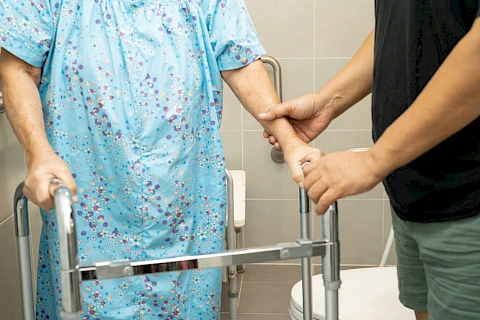
Bladder and bowel control issues is a common issue that affects many older adults. While it can be an uncomfortable topic to discuss, openly addressing senior incontinence management provides dignity and a high quality of life. Family caregivers oversee this condition, ensuring their loved ones feel supported and understood. With that in mind,we believe that there are some daily habits that they can help change senior lives for the better.
What Senior Incontinence Entails
Incontinence is the loss of bladder and bowel control, which can lead to accidental leaks. It is often caused by factors such as weakened pelvic muscles, urinary tract infections, or medication side effects. For older adults, dealing with incontinence can be both physically and emotionally challenging. It can lead to embarrassment and frustration, affecting the elders and the caretakers who support them.
1. Create a Supportive Environment
Creating an environment where open communication is encouraged to effectively manage issues is best. Talk openly with your senior loved ones about their condition. This fosters empathy and understanding, reducing feelings of embarrassment and frustration. Let them know that discussing their needs is okay and that you're there to help.
2. Make Dietary Adjustments
One of the first steps in senior incontinence management is making some dietary changes. Reducing the intake of caffeine and alcohol can be beneficial since these can irritate the bladder. Ensure your loved one stays hydrated, as dehydration can worsen health issues. Encourage a fiber-rich diet to promote digestive health and alleviate some incontinence symptoms.
3. Implement a Bathroom Schedule
Establishing a regular bathroom schedule can help prevent accidents. Encourage your loved one to use the bathroom at set times throughout the day. This might mean going every two to three hours, even if they don't feel the urge. Consistency is necessary, so help them stick to this routine to minimize the risk of accidents.
4. Choose the Right Products for Bladder and Bowel Control
Selecting the correct incontinence products is required for comfort and discretion. There are various options available, from pads to protective underwear. Choose based on the level of absorbency needed and ensure the products are comfortable to wear. This can significantly affect your loved one's confidence and comfort.
5. Promote Physical Activity
Exercise helps with managing senior incontinence by strengthening pelvic muscles and improving bladder control. Activities such as walking, swimming, or specific pelvic floor exercises like Kegels can be beneficial. Ensure that the exercises suit your loved one and encourage them to incorporate them into their routine. Check with a doctor before beginning any new routine to ensure it is safe.
6. Stress Management Techniques
Stress can exacerbate bladder control problems, so you must find ways to handle it. Encourage relaxation techniques such as meditation, deep breathing exercises, or even gentle yoga. These practices can reduce stress levels, potentially improving urinary function.
7. Seek Professional Help
In some cases, you'll need to seek professional help. Consult healthcare professionals for personalized advice and potential treatment options. Doctors may recommend physical therapy or medications for senior incontinence management more effectively. Don't hesitate to seek professional guidance to ensure your loved one receives the best possible care.
Get Assistance From Senior Helpers East Sacramento
Senior incontinence management involves a combination of lifestyle changes and support. By implementing these steps, caregivers can help their loved ones maintain dignity and a high quality of life. Be proactive and supportive, addressing the condition with empathy and understanding. If you're in the Sacramento area and need personalized care solutions, contact us at Senior Helpers East Sacramento for expert assistance tailored to your loved one's needs.